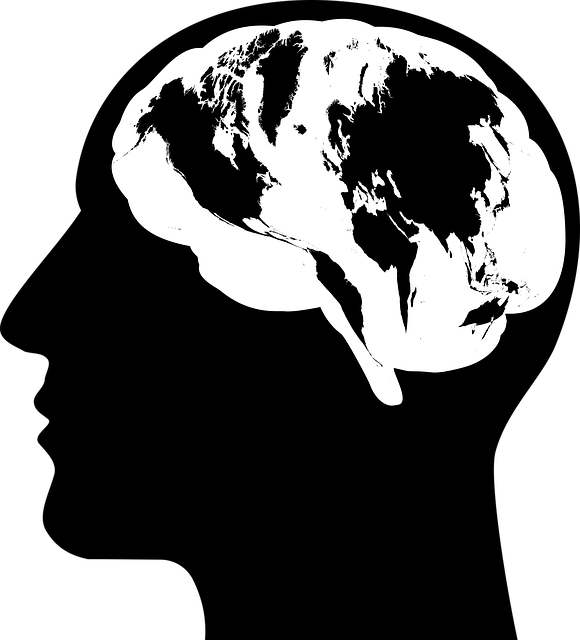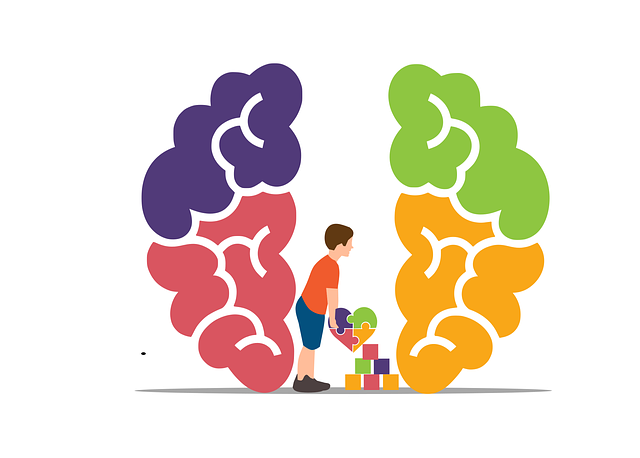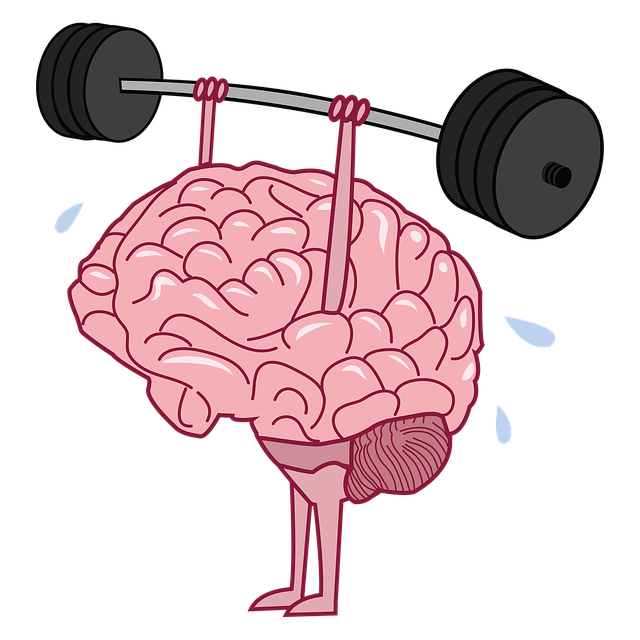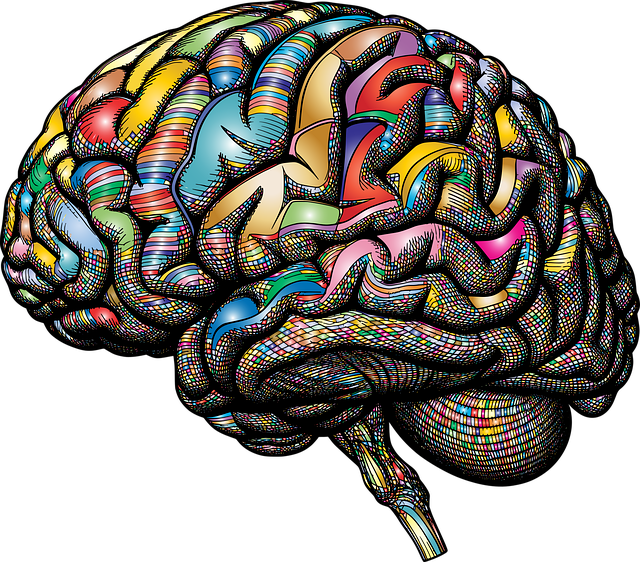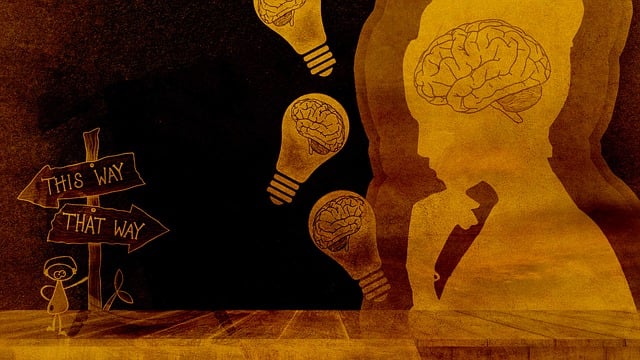Diagnosing mental health conditions accurately is challenging due to subjective assessment tools, cultural differences, and high comorbidity rates, particularly with drug abuse. Innovative approaches like integrating cognitive-behavioral therapy (CBT) tailored for adults struggling with both mental wellness and substance abuse show promise in enhancing diagnosis accuracy. Evidence-based practices like stress management workshops, structured clinical interviews, and artificial intelligence algorithms improve patient outcomes by enabling personalized interventions and self-awareness exercises. Effective Mental Health Policy Analysis and Advocacy, coupled with CBT, tailor interventions for adults with addiction while considering co-occurring mental health conditions, ultimately enhancing holistic patient care.
Mental illness diagnosis accuracy is a critical aspect of patient care, with significant implications for treatment outcomes. This article explores efforts to enhance diagnostic precision in the mental health field, addressing current challenges and highlighting innovative solutions. We delve into the impact of misdiagnosis on patients, especially those struggling with co-occurring drug abuse and mental health disorders. By examining advanced assessment tools, integrated therapy models, and professional development initiatives, we aim to illuminate strategies that can improve care for adults seeking therapy for substance abuse and mental health issues.
- The Current Landscape of Mental Illness Diagnosis
- – Challenges in diagnosis accuracy
- – Impact on patient outcomes and treatment adherence
- Innovations in Assessment Tools and Techniques
The Current Landscape of Mental Illness Diagnosis

The current landscape of mental illness diagnosis is a complex and often challenging domain within healthcare. With increasing awareness and research, we recognize that mental health issues are prevalent and diverse, affecting individuals across all demographics. The process of diagnosing mental disorders involves intricate assessments, including comprehensive clinical interviews, psychological evaluations, and sometimes specialized tools tailored to specific conditions. Despite these efforts, accuracy can be hindered by various factors. Cultural differences in expression of distress, comorbidity rates, and the subjective nature of many assessment methods contribute to diagnostic complexities. This is especially true when dealing with issues such as depression, anxiety, and substance abuse disorders, which often present with overlapping symptoms.
Efforts to enhance diagnosis accuracy focus on integrating various strategies. One key approach involves training mental health professionals in empathy-building techniques to foster stronger patient-therapist relationships, encouraging open communication. Additionally, promoting inner strength development and emotional healing processes through therapy for adults, particularly those struggling with drug abuse or substance abuse, has shown promise in improving diagnostic clarity. These methods aim to provide a more nuanced understanding of patients’ experiences, leading to more precise diagnoses and tailored treatment plans.
– Challenges in diagnosis accuracy

Diagnosing mental health conditions accurately is a complex task, often hindered by several factors. One significant challenge lies in the subjective nature of many assessment tools, where symptoms are self-reported by individuals, potentially introducing bias or overlooking subtle signs. This is especially true for conditions like anxiety and depression, where presentation can vary greatly between people. Additionally, comorbidity—the simultaneous existence of multiple disorders—is prevalent, making diagnosis a intricate web of considerations. For instance, drug abuse or substance use disorders often coexist with other mental illnesses, complicating the picture further.
The quest for enhanced accuracy drives exploration into innovative approaches. Integrating therapy techniques like cognitive-behavioral therapy (CBT) tailored to adults struggling with both mental wellness and drug abuse shows promise. CBT equips individuals with tools to challenge negative thought patterns and behaviors, promoting self-awareness exercises that can lead to anxiety relief. Keeping a Mental Wellness Journal, where individuals document their thoughts and feelings, can be a valuable companion to therapy, aiding in tracking progress and identifying triggers. These strategies not only improve diagnosis accuracy but also empower individuals on their path to recovery, offering practical guidance for navigating the complexities of mental health.
– Impact on patient outcomes and treatment adherence

Mental illness diagnosis accuracy significantly impacts patient outcomes and treatment adherence. When diagnoses are mismanaged or delayed, individuals may receive inappropriate therapy for adults, leading to ineffective or even harmful treatments. This can result in increased symptoms, decreased quality of life, and a higher risk of relapse, especially in cases of drug abuse-substance abuse. Accurate diagnoses empower patients and healthcare providers by enabling tailored interventions, enhancing self-awareness exercises, and fostering coping skills development.
Focused efforts to improve diagnosis accuracy include the integration of evidence-based practices such as stress management workshops within organizational frameworks. These initiatives promote early identification of mental health issues, ensuring that patients receive timely and appropriate care. By prioritizing accurate diagnoses, healthcare systems can ultimately improve treatment adherence, leading to better patient outcomes and a more robust support system for those struggling with mental illness.
Innovations in Assessment Tools and Techniques

The evolution of mental health assessment has seen significant advancements in recent years, driven by a need to improve diagnosis accuracy and overall patient care. Innovations in tools and techniques have expanded the spectrum of evaluation methods, offering more comprehensive insights into an individual’s mental state. From structured clinical interviews to advanced computational algorithms, these developments aim to reduce bias and enhance cultural sensitivity. For instance, artificial intelligence-based assessment platforms can analyze vast amounts of data, identifying subtle patterns indicative of specific disorders, especially useful in cases of comorbidities or nuanced presentations.
Furthermore, integrating evidence-based practices like cognitive-behavioral therapy (CBT) into assessment routines provides a dynamic approach to diagnosis. This not only aids in understanding the individual’s current symptoms but also offers a glimpse into their potential treatment responses. In the context of adult drug abuse and substance use disorders, such advancements are pivotal. By employing these innovative assessment methods, mental health professionals can tailor interventions, ensuring more effective therapy for adults struggling with addiction, while also considering any co-occurring mental health conditions. This multi-faceted approach, supported by ongoing Mental Health Policy Analysis and Advocacy, promotes a holistic understanding of patients’ complex needs, ultimately enhancing the effectiveness of self-care routine development and risk management planning in the field of mental health care.
Mental illness diagnosis has seen significant strides with innovations in assessment tools, addressing challenges that hinder accuracy. Integrating advanced techniques, such as digital health solutions and personalized therapy approaches like those tailored to adults struggling with drug abuse or substance use disorders, promises improved patient outcomes and enhanced treatment adherence. As these advancements continue to evolve, the mental healthcare landscape looks brighter, offering hope for more accurate diagnoses and effective care.
